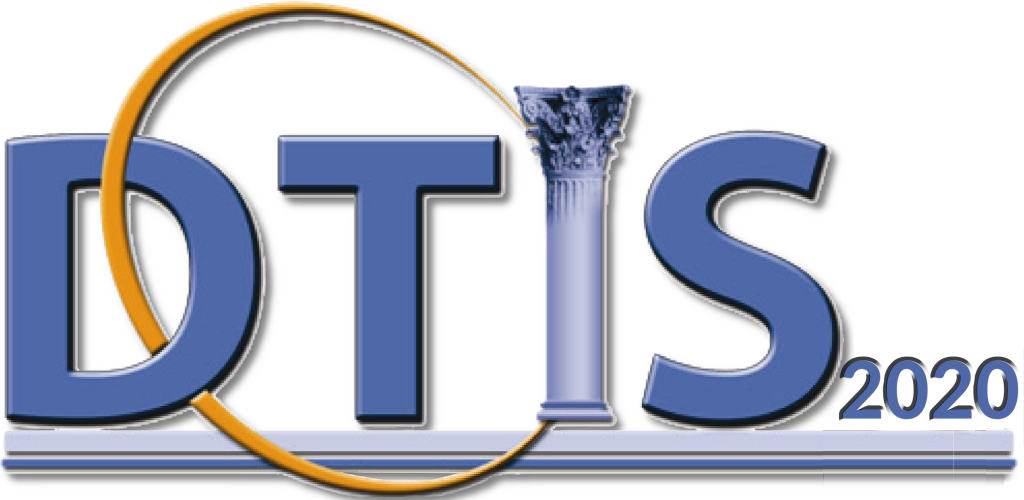Keynotes
From nano-electronic devices to neuromorphic computing
Siegfried Karg, IBM Research – Zurich
Abstract: Integrating III-V semiconductor devices on silicon-based complementary metal oxide semiconductors (CMOS) technology is one of the most promising routes for future sub-10 nm nodes. We have developed CMOS-compatible methods to deposit III–V materials on Si with good material quality and is compatible with CMOS processes. Our InGaAs field-effect transistors “on-insulator” offer high-mobility electron channels fully integrated in a standard CMOS environment. Further, the developed technology allowed to fabricate III-V transistors operating as capacitor-less DRAM (1T-DRAM) memory cells. Integration on CMOS platform, low voltage operation and excellent scaling make them viable candidates for embedded memory solutions. In nanowires of high-mobility III-V semiconductors one-dimensional (1D) quantum confinement is observed. We examined ballistic electron transport phenomena in InAs nanowires which could be the basis for applications related to quantum computing. Machine learning and artificial intelligence (AI) provide huge opportunities for semiconductor hardware. Artificial neural networks based on analog devices designed to perform highly parallel computing operations are explored as energy-efficient AI hardware accelerators. We investigate oscillating neural networks based on electronic relaxation oscillators as a test bed for neuromorphic computing. Experiments and simulations on devices and circuits based on nanoscale electrical switches that exploit the metal-insulator transition of vanadium dioxide (VO2) are shown.
The author

Dr. Siegfried Karg is a Research Staff Member at IBM Research – Zurich since 2000. He holds a Ph. D. degree in physics obtained from Univ. Bayreuth (Germany) in 1995. He held positions as post-doctoral scientist at IBM Research - Almaden (1995-1996) and as research assistant at Darmstadt Univ. of Technology (1997-1999). He worked on the physics and materials science of organic and polymer devices (OLEDs, OFETs and electrochemical cells). Moreover, Siegfried Karg has conducted research on memory applications such as resistive oxide RAM and, most recently, on capacitorless eDRAM based on III-V semiconductor transistors. Moreover, he investigated the one-dimensional electronic properties of InAs nanostructures. His current research fields include also brain-inspired computing applications exploiting oscillatory neural networks (with electronic oscillators based on the metal-insulator transition of VO2). S. Karg has authored about 100 scientific publications and holds more than 30 patents.
Integrated Systems Design: Realities, Threats, and Opportunities
Magdy S. Abadir, Executive consultant, Abadir and Associates
Abstract: TBA
The author
Magdy S. Abadir received the B.S. degree with honors in Computer Science and Automatic Control from Alexandria University, Egypt in 1978, the M.S. degree in Computer Science from the University of Saskatchewan, Saskatoon, Canada, in 1981, and the Ph.D. degree in Electrical Engineering from the University of Southern California, Los Angeles, in 1985 (Advisor: Melvin Breuer) Currently he is an executive consultant with Abadir and Associates. In the last several years he has been actively involved with several startups. One of these, Helic Inc., had a very successful exit as it got acquired in 2019 by Ansys Inc. Abadir served on Helic’s Board of Directors as well as the Chair of Helic’s Technical Advisory Board. He also served as Helic’s Vice President of Corporate Marketing. From 1995 to 2014, he spent almost 20 years with Freescale Semiconductor/Motorola in various roles. His last position was the Director of Design Automation and Vendor Relations. Prior to joining Motorola he was the General Manager of Best IC Labs in Austin Texas. From 1986 to 1994 he worked at the Microelectronics and Computer Technology Corporation (MCC) in Austin Texas. Dr. Abadir was selected in 2005 as an IEEE fellow for his contributions to the fields of verification and test of microprocessors. He has 12 patents issued plus several that has been filed. He founded and chaired three series of international workshops on (a) the Economics of Design, Test and Manufacturing, (b) Microprocessor and SOC Test, Security and Verification Workshop (MTV), and (c) International Verification and Security Workshop (IVSW). The last two workshops are still active and in 2020 the 21st MTV and the 5th IVSW will be held under his leadership. He published over 350 technical papers in the areas of design for test, test economics, verification, EDA, AI, Machine learning and data mining. Five of his papers received best paper awards (DATE 98, ASP-DAC 2002, DATE 2003, VLSI-DAT 2011, and ITC 2014). Abadir serves on the editorial boards of IEEE Transaction on VLSI (TVLSI), IEEE Design and Test (D&T) Magazine, and Springer JETTA Journal. He also served as an adjunct faculty at the University of Texas at Austin.

